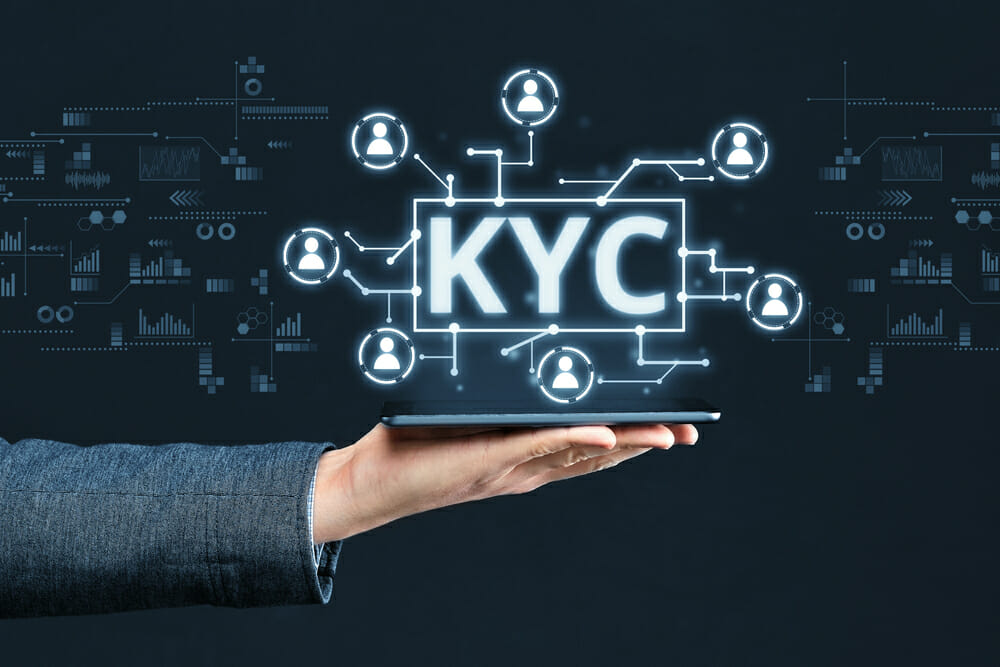GDPR and Your Verification Solutions: Ensuring Compliance and Data Security The General Data Protection Regulation (GDPR) has significant implications for how financial and legal service providers handle personal data during client onboarding. While KYC/AML...

Key Considerations for Implementing KYB and KYC Software for Your Business
Key Considerations for Implementing KYB and KYC Software for Your Business
With businesses facing the ongoing challenge of operating in a digital landscape that welcomes an increasing amount of users (source) each year, the need for robust Know Your Customer (KYC) processes has become integral for security and crime prevention. The Financial Industry Regulatory Authority (FINRA) has identified cybercrime as one of the greatest global risk factors for criminal activity in 2023 (source), and businesses can expect evolving mandates to expand the current regulatory demands faced by banks, financial, legal, and other related institutions.
Knowing how to choose the right KYC software for your specific needs is integral when it comes to streamlining your operations as well as staying compliant with all jurisdictional requirements. Below, we’ll take a closer look at some of the key factors to consider when viewing and implementing prospective KYC software, as well as the benefits of partnering with iComply. Read on to learn more!
Compliance is Essential
Know Your Customer protocols are more than just a box that needs to be checked to avoid fines (though this is certainly integral to their implementation). KYC processes and legislation are required to combat threats posed by a wide variety of criminal activities, including money laundering (AML), counter-terrorist funding (CTF), fraudulent activity, and the use of money for illicit means, including the drug and human trafficking trades. While KYC mandates may present inconveniences to businesses in terms of the need for altered and more secure operations, they are designed to prevent the very real, harsh realities faced by victims of crime all across the globe.
In order to make sure you find the best fit for your industry, as well as your jurisdiction, you must ensure that you are aware of all existing requirements and that your chosen solution performs as necessary to remain compliant in the fight against financial crime.
Did you know? iComply’s KYC solutions seamlessly integrate mandates from 250 jurisdictions and counting!
User Experience
In addition to being fully compliant with all relevant measures, your chosen KYC software should be easy to use for any individuals and/or departments involved. Your KYC platform should provide a user-friendly interface for both customers and your internal teams and guide them through every step of the verification process with clear instructions and a streamlined approach. Once data is submitted, it is essential that the software is able to accurately analyze and report core data points and provide comprehensive reporting and analytics features for your team to review as needed.
Security and Data Protection
KYC protocols call for the safe and efficient handling of sensitive customer information, including personal and financial data. Data security, therefore, must be a top priority when selecting a KYC software provider. Look for solutions that employ robust encryption protocols, secure storage systems, and regular security audits. As with the first point, you must ensure that your software is compliant with all relevant privacy mandates, and adheres to all related regulations.
Flexibility and Customization
Every business has distinct needs when it comes to fulfilling KYC protocols. Your chosen software should be flexible and allow you to customize it as needed for your specific industry. iComply’s modular suite of solutions, for example, makes it easy to stay compliant and integrate all necessary details but also gives you the opportunity to enhance your current practices with the full power of all elements being configured to your exact needs.
Why Partner with iComply?
iComplyKYC takes pride in revolutionizing the field of compliance with the help of our industry-leading KYC and due diligence solutions. Our comprehensive platform leverages edge computing, empowering users to process their sensitive data directly on their own devices, eliminating the risks associated with storing data in the cloud or relying on unverified third-party vendors. iComply’s modular suite of programs keeps you compliant with regulations from almost 250 jurisdictions worldwide, enabling your company to significantly reduce overhead costs by up to 80% in KYC operations.
Whether you’re seeking to streamline your hiring process, evaluate your existing customer database, or establish a strong operational foundation for the future, iComplyKYC provides an unrivalled level of safety and security. Our intelligent and customizable platform can be effortlessly set up within minutes and takes a streamlined approach to make it as easy as possible to screen for risks like AML, conduct Enhanced Due Diligence and implement ongoing monitoring, all within a single platform.
Book a demo with our team today to learn more about iComplyKYC and how our platform can be used for your specific needs and applications.
learn more
Is your AML compliance too expensive, time-consuming, or ineffective?
iComply enables financial services providers to reduce costs, risk, and complexity and improve staff capacity, effectiveness, and customer experience.
Request a demo today.
GDPR and Your Verification Solutions: Ensuring Compliance and Data Security
Ensuring Data Privacy in KYC Compliance: Key Steps and Best Practices
Data privacy compliance is a critical aspect of operating in today's digital landscape. Protecting personal data and adhering to regulatory requirements helps build trust with customers and avoid legal repercussions. Implementing...
Understanding the General Data Protection Regulation (GDPR) for Business Compliance
The General Data Protection Regulation (GDPR) is a comprehensive data protection law that impacts businesses operating within the European Union (EU) and those handling EU citizens' data. Ensuring compliance with GDPR is crucial...
















